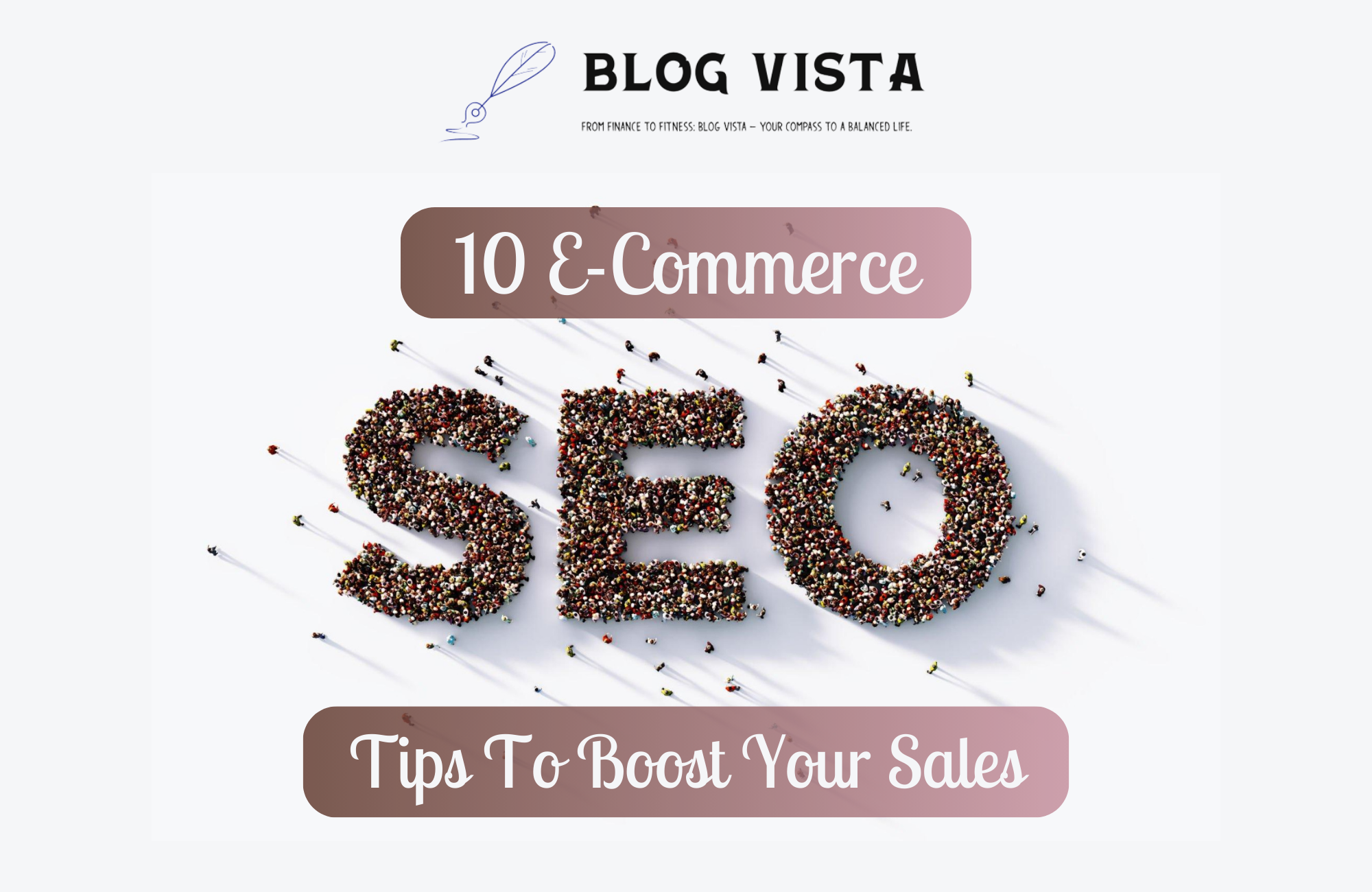For ecommerce businesses, driving traffic and sales online is imperative for success. With the rise of search engines like Google, more and more shoppers are turning to search to start their buying journey. Implementing search engine optimization (SEO) strategies has become a must for ecommerce sites looking to gain visibility, attract targeted visitors, and ultimately convert them into paying customers. In this blog, I will tell you some E-Commerce SEO tips you can use in your website to boost your sales.
Follow These 10 E-Commerce SEO Tips:
1. Conduct Thorough Keyword Research
The foundation of an effective ecommerce SEO strategy is identifying the most relevant, high-traffic keywords and phrases that your potential customers are searching for. Start by brainstorming seed keywords based on your products, services, and brand. Use free keyword research tools like Google Keyword Planner, SEMrush, or Soovle to discover keyword ideas and analyze the monthly search volume and difficulty score for each keyword.
Prioritize keywords that have high search volume (5,000+ searches per month) and a low difficulty score. This indicates less competition and more opportunity for your site to rank well and get traffic. Also look for more specific long-tail versions of the seed keywords (phrases with 3+ words) as they convert better.

2. Optimize Title Tags with Target Keywords
The HTML title tag is critical for both search engines and visitors, as it tells them what each page is about. Include your most important keywords in the title tag, ideally toward the beginning of a title less than 60 characters long. Well-optimized title tags with keywords improve click-through rates from search results significantly.
For example: “Organic Skincare Products [Keyword] – All Natural Ingredients”
3. Create Compelling Meta Descriptions
Meta descriptions provide a short summary of what each page is about in 155-160 characters. With keywords naturally included, they can entice searchers to click and visit your page. Use tempting wording and emotive language to create meta descriptions that generate more clicks. Ensure each page, especially product pages, has a unique meta description.
4. Optimize Site Speed

Page speed and site performance have a substantial impact on SEO rankings. Use image optimization, browser caching, lazy loading, and compression tools to accelerate load times. Faster page speeds equal better user experience, longer time on site, lower bounce rates, and higher conversions. By optimizing your side speed you will also improve your customer experience on your E-Commerce website.
5. Enhance On-Page SEO Elements
On-page SEO makes each page relevant for chosen keyword terms. Organically incorporate keywords into headings, content, image alt text, URLs, schema markup, and product titles/descriptions. Maintain a 1-3% keyword density. Producing useful, engaging content establishes you as an industry authority online.
6. Improve Navigation and Internal Links
Make your ecommerce site easy to navigate with well-organized menus, site maps, category/filter pages, suggested products, and clear calls-to-action. Use keywords to optimize internal links, passing authority and rankings power to key product pages you want to rank highly.
7. Incorporate Long-Tail Keywords

Long-tail keywords are more specific (usually 3+ words) and have less competition. Optimize for long-tail versions of your targets like “sustainable fair-trade coffee beans” or “durable hiking boots for women”. Include related long-tails throughout your site’s content for discoverability.
8. Create Fresh Blog Content
Launching a blog provides ongoing content and SEO opportunities. Develop content pillars around your major keywords. Write cluster of posts about each topic to establish your expertise. Interlink blog content to product pages to increase relevance. Promote new content across social media.
9. Encourage Customer Reviews
Customer reviews build trust and credibility that increases conversions. Enable and prompt reviews through follow-up emails, offers, and social media outreach. Showcasing them visibly provides “social proof”. More abundant, positive reviews also boosts rankings.
10. Build Authoritative Backlinks

The number and quality of external sites linking to you significantly impacts SEO authority and rankings. Secure backlinks from relevant industry websites by contributing guest posts, resources, testimonials etc. Monitor backlinks to identify and disavow any toxic links.
Conclusion
Learning digital marketing is becoming crucial for every business. Mastering ecommerce SEO techniques gives online stores a major competitive advantage. Do thorough keyword research to identify high-traffic, low-difficulty targets. Optimize on-page elements for conversions and rankings. Improve site speed and navigation. Produce engaging, useful content consistently. Obtain reputable backlinks. Follow these in-depth tips for ecommerce SEO success!
In conclusion, the world of ecommerce is a highly competitive landscape, and the success of your online store hinges on your ability to drive traffic and convert visitors into customers. Implementing a comprehensive SEO strategy is not just an option; it’s a necessity to achieve these goals. By following the ten in-depth ecommerce SEO tips outlined above, you can take your online store’s revenue to the next level.
Frequently Asked Questions
Keyword research is crucial for ecommerce SEO because it helps identify the most relevant, high-traffic keywords that align with what users are searching for.
Optimised title tags and meta descriptions improve click-through rates from search results by making listings enticing. Well-written titles and descriptions attract more clicks to your site from searchers.
Faster site speed equals better user experience. Quickly loading pages keep visitors on site longer, reduce bounce rates, and boost conversions.
On-page optimization increases relevancy between page content and chosen keywords. Incorporating keywords naturally on pages signals search engines what each page is about.
Long-tail keywords are more specific so they convert better by attracting highly targeted traffic. Long-tails have less competition, making them easier to rank for than short, broad keywords.
Blogging provides new SEO content opportunities. You can optimize blogs for keywords and link them to product pages to boost relevance.
Customer reviews build trust and credibility that increases sales. More positive reviews improve SEO rankings by acting as social proof of quality. Customer feedback also provides insights for improvement.
Reputable backlinks from authority sites help pages rank higher in search results. The more quality backlinks point to your site, the more search engines see your site as trustworthy.

